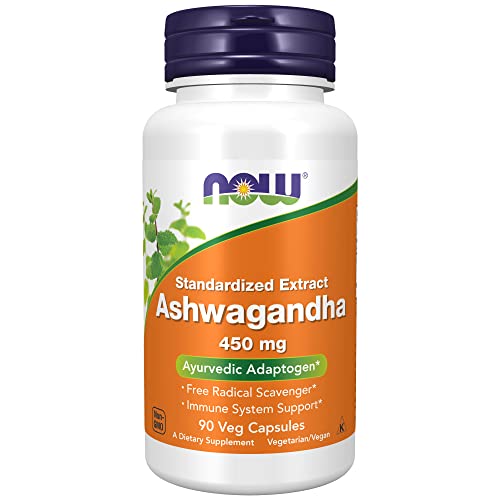Ashwagandha is a popular herb in Ayurvedic medicine, known for its wide array of potential health benefits, including supporting stress reduction, energy levels, and overall well-being.
Ashwagandha may offer some benefits for managing seborrheic dermatitis, but more research is needed to confirm its effectiveness. Incorporating ashwagandha into your daily routine may provide benefits that indirectly help manage seborrheic dermatitis. This herb’s anti-inflammatory and anti-anxiety properties, and its ability to improve your immune system may aid in reducing seborrheic dermatitis flares.
Let’s take a deep dive:
What is Ashwagandha?
Ashwagandha, also known as Withania somnifera, is an evergreen shrub native to Asia and Africa. It has been used for centuries in Ayurvedic medicine to promote overall health and vitality. You can find ashwagandha in various forms, such as roots, powders, extracts, and capsules.
Ashwagandha is sometimes referred to as Indian ginseng due to its rejuvenating and invigorating properties. Although not related to true ginseng, ashwagandha shares some of its characteristics, such as enhancing your energy levels and helping to alleviate fatigue.
You can take ashwagandha in various forms to suit your preferences and needs:
- Powder: Ashwagandha root powder can be mixed with warm milk or water and consumed as a daily tonic.
Check it out on Bulletproof. Use code MADAMEWELL20 for an extra 20% off
- Extracts: Liquid extracts or capsules containing ashwagandha root extract can be taken as dietary supplements.
Health Benefits of ashwagandha
Ashwagandha offers numerous health benefits, such as:
- Stress relief: Ashwagandha has been found to normalize cortisol levels, reducing the stress response in your body.
- Improved memory: This adaptogenic herb can also benefit your memory and cognitive function.
- Anti-inflammatory properties: Ashwagandha possesses anti-inflammatory capabilities, which may be helpful in managing various health conditions.
- Heart health: Some evidence suggests that ashwagandha may be beneficial for heart health, although more research is needed to confirm this.
Remember to consult with a healthcare professional before adding ashwagandha to your routine, especially if you have existing health conditions or are taking medication. While ashwagandha has been found to be safe for short-term use, its long-term safety is still being studied.
Does ashwagandha have antifungal properties?
While ashwagandha is known for its numerous health benefits, there is limited information regarding its antifungal properties. Small lab studies has shown that this herb has some antifungal activity against Aspergillus niger and flavus, and a few other plant fungi.
Another lab study suggested ashwagandha inhibits Candida. Having said that, this study was published in a journal called ‘Future Natural Products’ and called ashwaganda ‘wind cheese’ in the conclusion. It’s most definitely a typo but sheds doubt on the whole journal and publication.
There are no studies suggesting that ingesting ashwagandha or applying it topically, can inhibit Malassezia growth.
Is ashwagandha good for seborrheic dermatitis?
There is no direct evidence that ashwagandha is a good treatment for seborrheic dermatitis or can improve your condition. Based on what we know so far about this adaptogen herb, ashwagandha may help in alleviating the inflammation associated with seborrheic dermatitis. Reducing inflammation can help in soothing your irritated and inflamed skin, providing some relief.
One of the primary benefits of ashwagandha is its ability to reduce stress and anxiety. Since stress can be a trigger for seborrheic dermatitis flare-ups, managing stress levels with the help of ashwagandha might contribute to keeping your skin condition in check.
Ashwagandha has been found to improve immune function. This can help regulate your immune system’s response to Malassezia and its byproducts.
However, keep in mind that ashwagandha may not work for everyone and can in some cases, cause seborrheic dermatitis as a side effect. There are no studies showing this but there has been anecdotal accounts of individuals finding that their seb derm worsened after taking ashwagandha supplements for anxiety.
Potential side effects of ashwagandha
Some common side effects may include nausea, diarrhea, and vomiting. If you experience any allergic reactions such as itching, swelling, or difficulty breathing, discontinue use immediately and seek medical attention.
If you are pregnant or breastfeeding, consult your doctor before using ashwagandha, as there is not enough evidence to determine its safety during pregnancy and lactation periods. Never give ashwagandha to infants or young children.
Ashwagandha can affect your cortisol levels, so if you have a chronic condition that involves cortisol, such as adrenal insufficiency, please discuss using this supplement with your healthcare provider. Also, be aware that the FDA does not regulate dietary supplements like ashwagandha the same way it does prescription medications, so quality and potency may vary between different brands and batches.
That’s why I use Bulletproof supplements. I know I’m getting the real deal:
Check it out on Bulletproof. Use code MADAMEWELL20 for an extra 20% off
When taking ashwagandha, consider the following precautions:
- If you have diabetes or other chronic conditions, consult your doctor before using ashwagandha, as it may interact with your medications.
- Start with a small amount of ashwagandha powder or capsule to gauge your body’s reaction before increasing the dosage.
- Monitor yourself for any side effects or allergic reactions while taking ashwagandha.
- If you experience any adverse effects, discontinue use and seek medical advice.
By taking these precautions, if you want to, you can safely incorporate ashwagandha into your wellness routine and minimize the risk of side effects and interactions with medications.
 Check it out on Amazon
Check it out on Amazon Check it out on Amazon
Check it out on Amazon Check it out on Amazon
Check it out on Amazon Check it out on Amazon
Check it out on Amazon
Pingback: Does stress trigger seborrheic dermatitis?
Pingback: Ashwagandha for Stress and Seb Derm? (18/05/2023)